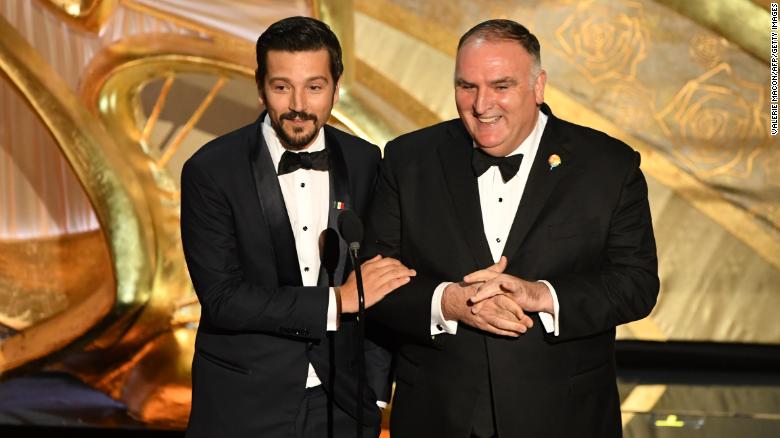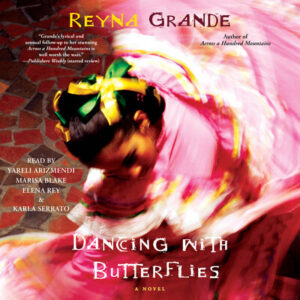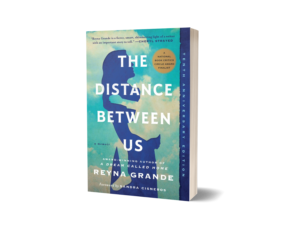I Lost My Mother Tongue–and Almost My Mom
Published by CNN

Mexican actor Diego Luna and Chef Jose Andres (L) during the 91st Annual Academy Awards at the Dolby Theatre in Hollywood, California on February 24, 2019.
(CNN)It was only fitting that just three days after UNESCO celebrated International Mother Language Day, Spanish was spoken at the 91st Academy Awards.
“Ya se puede hablar español en los Oscars,” Mexican actor Diego Luna said onstage. “Ya nos abrieron la puerta y no nos vamos a ir.” We can speak Spanish at the Oscars now. They’ve opened the door to us and we aren’t going anywhere…
It was empowering for me to hear the unapologetic use of my mother tongue at the Oscars — not only from Luna but also from Javier Bardem and Alfonso Cuarón — and it made me think about my childhood, when instead of pride, I was made to feel shame, when instead of a door being opened, an invisible wall was erected, when instead of being celebrated, my mother tongue was degraded.
On my first day at a US school in September 1985, upon realizing that I didn’t speak a word of English, my 5th-grade teacher pointed to the farthest corner of her classroom and sent me there. She ignored me for the rest of the year.
The message I received was that if I wanted to be seen and heard, I’d have to speak English. As I sat in that corner day after day, invisible, the trauma of realizing that I spoke the “wrong” language weighed on me and my head swam with debilitating thoughts: I am broken. I am wrong. I am not enough.
Halfway through the year, my school held a writing competition requiring all the students to write a story. I wrote mine in the only language I knew. When my teacher collected the stories to choose the best ones for the competition, she tossed mine — and those of the other non-English speakers — into the reject pile.
When I entered junior high school a few years later, I was placed in a transitional English as a Second Language (ESL) program. Its sole purpose was to make me English-proficient but not bilingual or biliterate. I was never encouraged to maintain and develop my mother tongue, only to learn English fast enough so that I could finally join mainstream classes — and shed the stigma of being classified as an “English Learner.”
UNESCO defines a second language as “a language acquired by a person in addition to [her] home language.” But at my junior high, because English was the only language I heard from my teachers, the objective seemed to be replacement, not addition.
Little by little, my Spanish was supplanted by English until I began to think and dream, and write only in that language. I didn’t know then that a term existed to describe this phenomenon —subtractive bilingualism, the act of subtracting the mother tongue and substituting English. In other words, the displacing of a fundamental part of ourselves: the unconscious initial expression of our humanity.
In 8th grade, my junior high school held a writing competition similar to the one at my elementary school. I wrote a story in English this time and entered the competition, eager to be judged on the same terms as everyone else. To my surprise, I won first place.
Although winning that competition would help me gain confidence in my writing skills, which later led to a career as a professional writer, it destroyed my relationship with Spanish. What I learned from that early experience was: If I write in Spanish, I will be rejected. If I write in English, I will be celebrated and win prizes. English, I concluded, was the only path to success in this country.
The result is that for the past 30 years, whenever I have put pen to paper, the words that come out are in English, with only a sprinkling of Spanish for flavor. I have written best-selling books, essays, articles, op-eds, all in English.
Our society has, in some ways, made great progress in how it approaches the education of children like I was, but we still have a long ways to go in eradicating our distrust and disdain for other languages.
Take for example the woman in West Virginia who last week verbally assaulted a manager at a Mexican restaurant for speaking Spanish and screamed, “When you are in America you need to speak English!” Or the Border Patrol agent in Montana who questioned two US born Latinas and asked for their IDs simply because he overheard them speaking Spanish. Or the situation at Duke University last month, when one of its medical school professors was asked to step down after she sent a warning to students to speak English only, or risk the “unintended consequences when you choose to speak Chinese in the building.”
What are the unintended consequences of being shamed or threatened into speaking English? When our relationship to our mother tongue is compromised, so, too, is our self-image and our most natural way of interacting with the world.
As I grew up, the shame I felt about my mother tongue eventually drove a wedge between me and my own mother, who never learned English.
Since my parents were divorced and my siblings and I lived with our father, we would sporadically visit our mother at her one-room studio in downtown Los Angeles near Skid Row, surrounded by homeless people, prostitutes and drug addicts.
When she’d first arrived in the US at 30, my mother worked at a garment factory trimming threads for 15 cents per garment. Later, she quit that job and became a vendor at the local swap meets selling Avon products and cheap plastic sandals. She supplemented her income by picking cans and bottles out of the trash and taking them to the recycling center.
By then, my siblings and I had bought into the belief that to succeed in this country you had forfeit your cultural identity, so we would constantly encourage our mother to go to adult school and learn English. She would shake her head, dismayed by our suggestion. “El inglés no se me pega.” English doesn’t stick to me, she’d say.
As my siblings and I became English-proficient and finally, English-dominant, we began to reject our mother and everything she represented. To our Americanized eyes, she was a symbol of what we didn’t want to be — a working-class, uneducated, non-English-speaking immigrant. The more we were educated in US schools and the more we assimilated, the more we internalized the disdain American society has for someone like my mother. My siblings and I spoke English all the time, and as the years passed, we both consciously and unconsciously excluded our mother from all our conversations and eventually, from our middle-class American lives.
As an adult, I’ve come to realize how important bilingualism is in a diverse country such as ours, and yet, those formative experiences in school prevented me from teaching Spanish to my own children. The same was true for my sisters. On those rare times they’d see their grandmother, my children couldn’t speak to her without the help of Google Translate.
Just like it had with me, the language barrier created a distance between my children and my mother.
My teenage son can’t speak Spanish beyond level 1. My young daughter’s Spanish was as limited as my son’s, but a few years ago we moved to Davis, California, and to our surprise, the local elementary school, Marguerite Montgomery Elementary, offered a two-way Spanish immersion program even though the population is 55.4% white alone, not Hispanic or Latino and only 14%
Latino.
I saw this as an opportunity to undo my mistake and requested for my daughter to be enrolled in the program. But, since she was entering halfway through second grade and not in kindergarten when students typically begin, she was given a placement test. She almost failed it. She couldn’t speak in sentences and only knew individual words such as agua, abuela, mamá, papá. Luckily, they let her in anyway.
Six months later, I was invited to visit her classroom to see my daughter’s final project: a 20-minute slideshow presentation about thorn bugs — in Spanish. In six months, my daughter had become completely bilingual and able to read in both languages, with no loss to her native tongue, and better yet, no trauma.
When I took her to Mexico to visit my relatives over the holidays, she was so happy to be able to speak to everyone there, including her own grandmother, whom I had invited to join us on the trip as a way to reconnect. There we were — my mother, my daughter, and I speaking Spanish together. “Thank you, Mommy, for putting me in that program,” my daughter said on the day we arrived.
My daughter’s experience with language learning has been the opposite of mine. Her teachers have never made her feel that she must sacrifice, subtract, replace or reject anything about herself. The most important lesson her bilingual program has taught her is this: She is now more, not less, than who she used to be.
It took me into my adulthood to realize the extent of the damage caused by my educational trauma wrought by institutions that shamed me into speaking only English. But I am slowly reclaiming what I’d been forced to give up — my connection to my mother tongue and with it, my relationship with my own mother.
I hope that among the millions of people watching the Academy Awards on Sunday night, there was a 5th-grade immigrant girl who heard her mother tongue being spoken at one of the most prestigious events in the country and realized that she is not invisible, not broken.
For my part, Diego Luna and his fellow artists have inspired me to one day do what I thought I could never do — write a book in Spanish and rediscover what I once lost, one word at a time.

